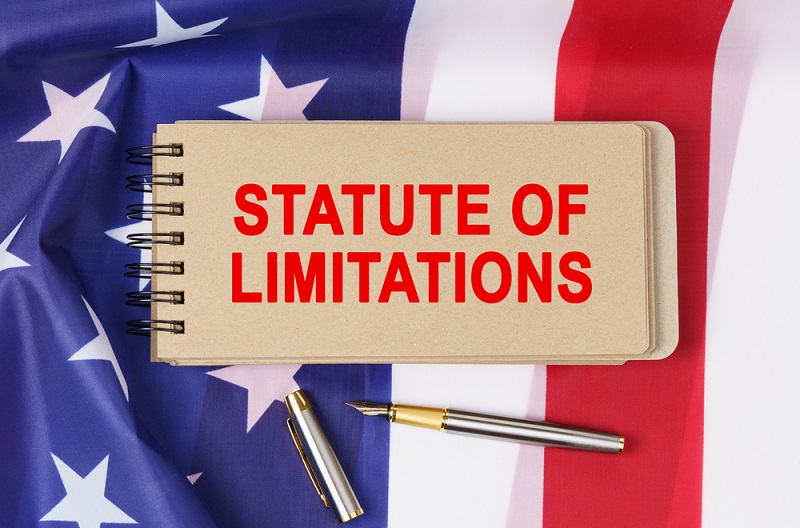In 2024, the statute of limitations for filing a personal injury lawsuit remains unchanged in most states. This deadline ranges from 1 to 6 years, depending on the location. For injured victims, it is essential to understand their state’s time limit so they can take action before it’s too late. As an attorney, law blogging can help raise awareness about these filing deadlines and ensure victims’ rights are protected.
Blogs focused on personal injury law serve several important purposes. They educate the public about their legal options after an accident. They bring credibility to lawyers who share their knowledge. Most importantly, they empower injured victims to advocate for themselves and seek fair compensation. Personal injury blogging should highlight the statute of limitations rules in every state. If you aren’t sure where to start, it’s a good idea to enlist the help of professional law firm blog writers.
What is the Statute of Limitations?
First of all, you’ll need to outline what the statute of limitations is. As you know, the statute of limitations sets a deadline for taking legal action. These deadlines exist for civil cases like personal injury and medical malpractice lawsuits. The time limit encourages prompt filings so evidence and memories stay fresh. Defendants also gain legal closure once the deadline passes.
Your readers need to know that every state has its own statute of limitations for personal injury claims and that the clock starts ticking on the date of the injury or sometimes the date it was discovered. Run out of time and the right to sue is lost forever.
Why Blogging About Statutes of Limitation Matters
Legal blogs serve an important educational function by teaching readers about personal injury statutes of limitation in each state. This knowledge empowers victims to make wise choices after an accident. Understanding state time limits can make the difference between receiving fair compensation or losing rights.
Using law firm blog writers to post about state filing deadlines also increases transparency around the legal process. By clearly explaining statutes of limitation, lawyers help victims navigate a complex system. Readers will appreciate straight answers about how long they have to take action after an injury.
In addition, blogging lends credibility to lawyers who share their expertise. Quality legal analysis helps establish trust with potential clients. Personal injury attorneys who publish blogs show a commitment to helping injured victims in any way they can – even if readers do not become paying clients.
Finally, blogging about statutes of limitation gives victims a platform to find their voice. By learning their rights, the injured party can better advocate for themselves in the legal process. Proper legal education leads to empowerment.
State-by-State Personal Injury Statutes of Limitation in 2024
Now let’s examine the personal injury statutes of limitation on a state-by-state basis for 2024:
- Alabama: 2 years
- Alaska: 2 years
- Arizona: 2 years
- Arkansas: 3 years
- California: 2 years
- Colorado: 2 years or 3 years for auto accident claims
- Connecticut: 2 years
- Delaware: 2 years
- District of Columbia: 3 years
- Florida: 4 years
- Georgia: 2 years
- Hawaii: 2 years
- Idaho: 2 years
- Illinois: 2 years
- Indiana: 2 years
- Iowa: 2 years
- Kansas: 2 years
- Kentucky: 1 year or 2 years for auto accident claims
- Louisiana: 1 year
- Maine: 6 years
- Maryland: 3 years
- Massachusetts: 3 years
- Michigan: 3 years or 1 year for personal injury protection insurance claims
- Minnesota: 2 years
- Mississippi: 3 years
- Missouri: 5 years
- Montana: 3 years
- Nebraska: 4 years
- Nevada: 2 years
- New Hampshire: 3 years
- New Jersey: 2 years
- New Mexico: 3 years
- New York: 3 years
- North Carolina: 3 years
- North Dakota: 6 years
- Ohio: 2 years
- Oklahoma: 2 years
- Oregon: 2 years
- Pennsylvania: 2 years
- Rhode Island: 3 years
- South Carolina: 3 years
- South Dakota: 3 years
- Tennessee: 1 year
- Texas: 2 years
- Utah: 4 years
- Vermont: 3 years
- Virginia: 2 years
- Washington: 3 years
- West Virginia: 2 years
- Wisconsin: 3 years
- Wyoming: 4 years
These statutes of limitation can get confusing, which is why law firm blog writers play such a vital role. They provide clarity around the exact time victims have to contact an attorney after an accident. With this knowledge, the injured person can avoid missing the deadline and having their case dismissed on procedural grounds.
Tips for Injured Victims with Looming Statutes of Limitation
For those staring down an approaching statute of limitation in their state, several proactive steps can preserve their right to sue. You might want to outline what these are in your blog. For example:
- Consult with a personal injury attorney right away. Never assume you have plenty of time left to file. Let a lawyer review your case today.
- Gather evidence promptly. Police reports, medical records, witness statements, and other documentation will be vital. Don’t delay collecting them.
- Keep detailed records of how the injury has impacted your life. Document lost income, costs, pain levels, and recovery progress.
- Follow your doctor’s advice closely. You need quality medical care along with records of treatment plans, recommendations and progress.
- Don’t give statements or sign anything without consulting your attorney first. You don’t want to unintentionally hurt your case.
- Be honest with your lawyer. Providing inaccurate facts or withholding information can sabotage your claim down the road.
By taking proactive steps today, your clients can build a strong injury claim before their state’s statute of limitation expires.
The Value of Legal Blogging in 2024 and Beyond
In 2024 and beyond, legal blogging will continue shining a spotlight on important issues like personal injury statutes of limitation. These blogs empower victims to understand their rights and navigate the claims process.
By providing a trusted educational forum, legal blogs help readers at their most vulnerable moments. Reliable information can make all the difference when suffering after an accident. Blogging personal injury attorneys extend their advocacy through writing.
Hopefully, all states will consider extending their statute of limitation deadlines in the future. Short deadlines like 1 year don’t give injured victims enough time to file claims while focused on health needs. But until changes happen, legal blogs will keep victims informed and aware.
To establish an authoritative legal blog and demonstrate your expertise to potential clients, enlist the services of a professional legal content writing service. Outsourcing your blog content to qualified law firm blog writers ensures your posts are well-researched, optimized for SEO, and published on a consistent basis. Focus on your law practice while experienced legal blog writers handle content creation. Let your blog be the online showcase of your skills – without taking time away from serving existing clients. Trust a legal blog writing service to do the writing for you. Contact We Write Law Blogs today!


